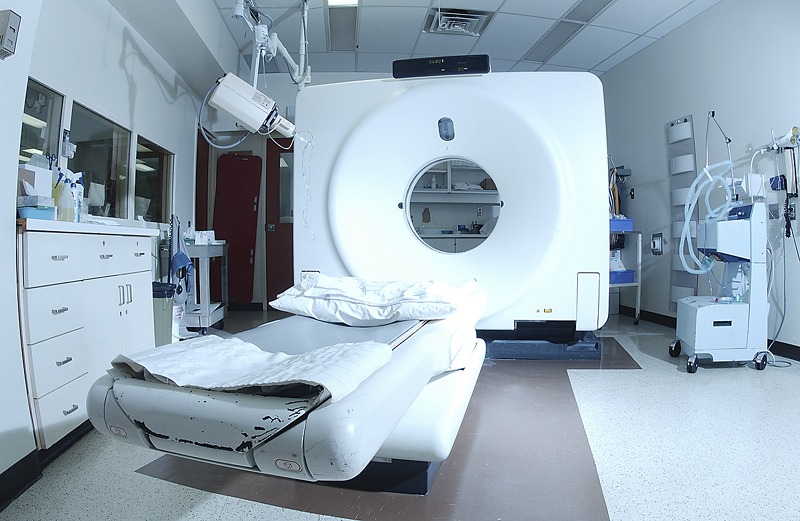
MONDAY, Feb. 6 (HealthDay News) — New guidelines for diagnosing the mental decline that can come with several diseases of aging may create confusion among doctors and patients about who has early Alzheimer’s disease and who simply has mild cognitive impairment, a new report warns.
Mild cognitive impairment (MCI) is a mental decline in its earliest stages that’s not a normal part of aging. Under previous guidelines, a patient was considered to have MCI if he or she had marked, but mild, memory problems but was otherwise functioning normally, explained Dr. John Morris, director of the Alzheimer’s Disease Research Center at Washington University School of Medicine in St. Louis.
Recently, the U.S. National Institute on Aging and the Alzheimer’s Association convened a work group to update criteria for MCI. Their revised guidelines cast a wider net for what qualifies. “As MCI was studied further, it was found that people with MCI often had other impairments in reasoning, visual-spatial skills and attention,” Morris said.
Under the new guidelines, people with MCI can have also have problems doing daily activities, such as driving without getting disoriented, remembering to pay bills and paying the proper amount, and cooking safely. People can have MCI even if they depend on aids or assistance to complete those tasks.
Previously, what distinguished MCI from dementia was that ability to function, but the new guidelines blur the distinction, Morris noted.
“Now, there is no distinguishing line between mild cognitive impairment and mild Alzheimer’s disease dementia,” said Morris, who lays out his argument in an analysis published online Feb. 6 in the Archives of Neurology. “Broadening the criteria for MCI overlaps so much with the diagnosis of very mild Alzheimer’s disease that physicians won’t know whether to call it very mild Alzheimer’s or MCI. It adds confusion to the field.”
Morris’ study included more than 17,500 people with a mean age of 75 who had either normal memory and thinking skills, MCI or Alzheimer’s disease dementia.
He concluded that 99.8 percent of patients currently diagnosed with “very mild” Alzheimer’s dementia and just under 93 percent of those diagnosed with “mild” Alzheimer’s dementia could be reclassified as having MCI, based on the revised criteria.
Some 5.4 million Americans have Alzheimer’s, according to the Alzheimer’s Association.
While MCI can be a first sign of the Alzheimer’s, it’s not necessarily so. Other causes of MCI can include medications, stroke or depression, Morris explained.
Diagnosing Alzheimer’s disease is typically done through a clinical examination with a neurologist. Neuroimaging tests are conducted, to rule out other conditions that might have caused the mental decline, such as a stroke or brain tumor.
Other means of diagnosing Alzheimer’s include a spinal tap that looks for certain biomarkers in the spinal fluid or specialized MRIs that can detect amyloid protein, which is associated with Alzheimer’s. However, these are not typically available outside of large metropolitan hospitals or as part of medical studies.
Dr. William Thies, chief medical and scientific officer for the Alzheimer’s Association, said researchers now understand that Alzheimer’s is a continuum of changes in the brain that begin years, and possibly decades, before the first MCI symptoms are noticed. Alzheimer’s itself, Thies said, represents “the very last, devastating changes of the disease.”
“You can do a lot of damage to the brain before it will not do all the functions it’s supposed to do,” Thies said. “There is a period of time when you will have silent changes in your brain structure and function, a pre-symptomatic period when the changes have already begun.”
Because Alzheimer’s is a continuum, that means that drawing a line between MCI and Alzheimer’s is, by definition, “artificial,” he noted.
“We recognize those lines are artificial, and at the moment because the criteria are relatively new, they remain somewhat fuzzy,” Thies said. “This is an area where we will have continued discussion over the next few years to establish consistently where to categorize folks.”
When Alzheimer’s is believed to be the underlying cause of MCI, physicians can offer up a diagnosis of “MCI due to AD [Alzheimer’s disease],” Morris said.
Even though the diagnosis of Alzheimer’s is more devastating than MCI, it’s important for patients and their families to hear the truth, so that they can come to terms with the diagnosis and make the necessary plans, Morris said.
“When we think the MCI is caused by underlying Alzheimer’s disease, we should go ahead and call it very early Alzheimer’s,” Morris said. “It’s artificial to call it MCI.”
According to background information in the article, 30 percent to 60 percent of doctors conceal an Alzheimer’s disease diagnosis because of causing distress to the family and the patient, even though 94 percent of the same doctors would reveal a diagnosis of terminal cancer.
Dr. Gayatri Devi, an attending neurologist at Lenox Hill Hospital in New York City, said that as a result of the new criteria, “large numbers of patients will be classified as having mild cognitive impairment when in fact they’re suffering from Alzheimer’s disease.”
“This complicates research in the area, and confuses patients and families, not to mention physicians, who’ve relied on functional independence as the demarcation between Alzheimer’s disease and MCI,” Devi said.
More information
The U.S. National Institute on Aging has more on Alzheimer’s.

